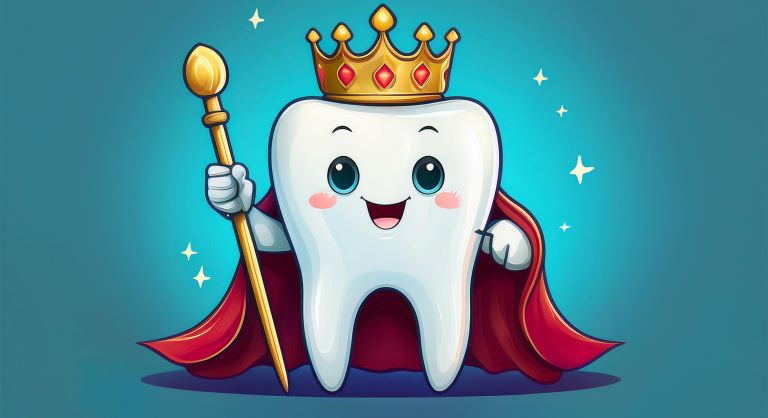
Your teeth work hard to help you speak, eat, and showcase your beautiful smile. Naturally, they deserve a crown! But all jokes aside, if you have a tooth with a large area of decay or damage, your dentist may recommend a dental crown to repair it. These restorations are used when the area in question is too big to be repaired by a regular filling. They fit over the tooth like a cap, blending seamlessly into your arch, virtually indistinguishable from the rest of your teeth. Plus, because they are crafted with durable materials, they are fully functional, too. If you’ve just gotten a crown, here’s what you can expect from your recovery.
The Creation Process
Your dental crown treatment first begins with preparing the tooth for its prosthetic. This typically involves creating a mold of the damaged tooth to base your restoration on, so it fits perfectly in your mouth. Next, your dentist will remove the damaged tooth enamel. Typically, patients will need local anesthesia for this procedure. Once it wears off, you may experience some sensitivity or discomfort. This is completely normal and is usually well managed with OTC pain relievers.
At this time, your dentist will place a temporary crown. You will need to return in about two weeks to have your new one attached. This portion of the treatment should not hurt; however, your tooth may still be a little sore for a few days afterward.
Life With Your New Crown
Once you leave your dentist’s office with your new crown in place, you are free to enjoy using it just as you do your natural teeth. If you are experiencing any lingering sensitivity or discomfort, you can still use OTC pain relievers or apply cold compresses to your cheek over the tooth.
Eating with crowns is easy. You can chew nearly anything edible with them, however, be careful to avoid anything too crunchy like ice cubes or hard candy, as they could damage it. Otherwise, you should be able to use it without any pain or difficulties.
Caring for Your Crown
Thankfully, your new crown doesn’t require any special care. You can still brush your teeth as you normally would (twice a day) and floss (at least once a day). Be careful, however, when flossing around your temporary crown, as this can sometimes cause them to become loose. If this happens, call your dentist for further instructions. Do not attempt to reattach it with adhesive. You can use OTC dental cement if approved by your dentist but call and get the okay first before trying.
No matter how many crowns you have, you will still need to see the dentist twice a year for your regular, semi-annual exam and cleaning appointments. While crowns cannot get cavities or decay, the tooth underneath still can, so don’t neglect your hygiene.
With proper care and usage, your new crown should last up to ten years before it needs to be replaced. If you see any cracks, if it comes loose, chips, or if you notice a dark line forming around the base, contact your dentist as soon as possible to have it evaluated.
Remember, crowns are an excellent option for teeth with severe damage that cannot be repaired with a regular filling. Recovering from this treatment is usually quite easy, but if you have any lingering pain or sensitivity, your crown doesn’t fit correctly, or if it falls out or becomes damaged, be sure to speak to your dentist at once!
About Our Practice
At Jacksonville Dental Specialists, we treat our patients like royalty! Whether you’re here for an exam and cleaning, a cosmetic procedure, or for a regal new dental crown, we’re honored for the opportunity to help. If you have extensive damage or decay and need a durable, functional, natural-looking solution, let our skilled dental team explain the benefits of a dental crown.
To schedule an appointment for crowns, please visit our website or call us today at 904-683-4781.
